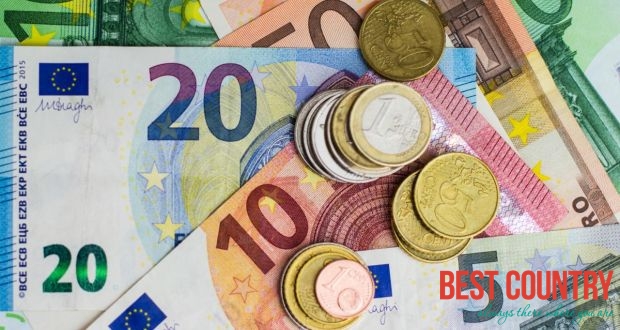Money in Germany

Although prices in Germany are high, you generally get good value for your money.
The inflation rate has remained low. Hotels are usually clean and comfortable, and restaurants generally offer good cuisine and ample portions made with quality ingredients.
Trains are fast and on time, and most service personnel treat you with respect.
Many people come to Germany just for winter sports. The most expensive resorts are places like Garmisch-Partenkirchen.
However, if you avoid the chic places, you can enjoy winter fun at a moderate cost. Some of the winter spots in the Bavarian Alps that haven't been overrun by the beautiful people give you great value for your money.
And prices in a village next to a resort are often 30% lower than at the resort itself.
In Germany, many prices for children (generally defined as ages 6-17) are considerably lower than for adults. And fees for children 5 and younger are often waived entirely.
Currency
The euro is the single European currency of Germany and other participating countries. Exchange rates of participating countries are locked into a common currency fluctuating against the dollar.
ATMs
The easiest way to get cash away from home is from an ATM (automated teller machine), sometimes referred to as a Geldautomat. The Cirrus (tel. 800/424-7787; www.mastercard.com) and PLUS (www.visa.com) networks span the globe; look at the back of your bank card to see which network you're on, and then call or check online for ATM locations at your destination.
Be sure you know your personal identification number (PIN) and daily withdrawal limit before you depart. Note: Remember that many banks impose a fee every time you use a card at another bank's ATM, and that fee can be higher for international transactions (up to $5 or more) than for domestic ones (where they're rarely more than $2).
In addition, the bank from which you withdraw cash may charge its own fee. For international withdrawal fees, ask your bank.
Note: Banks that are members of the Global ATM Alliance charge no transaction fees for cash withdrawals at other Alliance member ATMs; these include Bank of America, Scotiabank (Canada, Caribbean, and Mexico), Barclays (U.K. and parts of Africa), Deutsche Bank (Germany, Poland, Spain, and Italy), and BNP Paribas (France).
Credit Cards
Credit cards are another safe way to carry money. They also provide a convenient record of all your expenses, and they generally offer relatively good exchange rates.
You can withdraw cash advances from your credit cards at banks or ATMs, but high fees make credit card cash advances a pricey way to get cash.
Keep in mind that you'll pay interest from the moment of your withdrawal, even if you pay your monthly bills on time. Also, note that many banks now assess a 1% to 3% "transaction fee" on all charges you incur abroad (whether you're using the local currency or your native currency).
In Germany, American Express, Diners Club, MasterCard, and Visa are commonly accepted, with the latter two cards predominating.
Dear Visa: I'm Off to Schleswig-Holstein! -- Some credit card companies recommend that you notify them of any impending trip abroad so that they don't become suspicious when the card is used numerous times in a foreign destination and block your charges.
Even if you don't call your credit card company in advance, you can always call the card's toll-free emergency number if a charge is refused -- a good reason to carry the phone number with you.
But perhaps the most important lesson here is to carry more than one card with you on your trip; a card may not work for any number of reasons, so having a backup is the smart way to go.
Traveler's Checks
You can buy traveler's checks at most banks. They are offered in denominations of $20, $50, $100, $500, and sometimes $1,000. Generally, you'll pay a service charge ranging from 1% to 4%.
The most popular traveler's checks are offered by American Express (tel. 800/528-4800 or 800/221-7282 for cardholders -- this latter number accepts collect calls, offers service in several foreign languages, and exempts Amex gold and platinum cardholders from the 1% fee; www.americanexpress.com), Visa (tel. 800/732-1322) traveler's checks are available only to AAA members.
There is also a Visa travel money card (debit card) available to AAA members for $4.95; nonmembers, $6.95. These cards are issued at AAA branches; search www.aaany.com to locate the branch nearest to you, or call tel. 866/339-3378.
American Express, Thomas Cook, Visa, and MasterCard offer foreign-currency traveler's checks, which are useful if you're traveling to only one country, or to the euro zone; they're accepted at locations where dollar checks may not be.
If you carry traveler's checks, keep a record of the serial numbers separate from your checks, in the event that they are stolen or lost. You'll get a refund faster if you know the numbers.